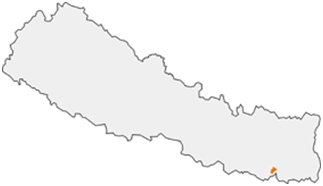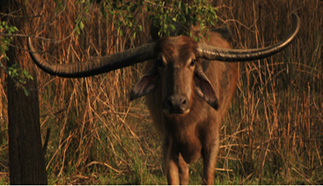- Home |
- Why With Us |
- About Us |
- Booking |
- Contact Us |
- Site Map
- Home
-
Nepal
-
Trekking
- Arun Valley with Gokyo Lakes
- Everest Base Camp Trek
- Everest- A Living Culture Exploration
- Everest Explore
- Everest Base Camp (via Thame) Trek
- Everest Base Camp with Kala Patthar
- Everest Comfort Trek
- Everest High Passes with Ama Dablam Base Camp
- Everest Mani Rimdu Festival Trek
- Everest Nagpa La Trek
- Everest with three high passes
- Gokyo Ri, Chola Pass & Chukung Ri with Kala Patthar
- Gokyo with Everest Base Camp
- Jomsom - Muktinath
- Jomsom - Muktinath
- Khayar Lake Trek
- Manaslu and Tsum Valley with Larkya La
- Upper Mustang Trek
- Manaslu High Circuit
- Manaslu, Tilicho Pass & Upper Mustang
- Annapurna Base Camp Trek
- The Annapurna Circuit Trek
- Annapurna Panorama
- Nar and Phu Valley Trekking
- Nepal Rhododendron Trek
- Royal Trek
- Saribung Trek and Expedition
- Annapurna Sanctuary Trek
- The Annapurna Sunrise Trek
- Expedition
-
Rafting
-
Peak Climbing
-
Tours
- Kathmandu-Chitwan-Jungle Tour with visit to Pokhara
- Dawn to Dusk Tour
- Historical, Natural & Cultural Tour with Camping
- Kathmandu Valley Temple Tour
- Temple - Panorama - Jungle Tour
- Taste of Nepal
- Central Nepal Tour
- Explore Nepal Tour & Trek
- Nepal Cross-country Tour
- Best of Nepal Tour & Treks
- Kathmandu valley rim Tour & Treks
- Nepal Culture Tour
- Introduction to Nepal Tour & Treks
- Nepal at a glance Tour & Treks
- Wonders of Nepal Tour & Treks
- Glimpses of Nepal Tour & Treks
- Through the Silhouette Tour & Treks
- Tent and Temple Tour
- Kathmandu-Chitwan-Pokhara Tour
- Historical, Cultural City and Jungle Tour
- Nepal Wildlife Tour
- Nepal Panorama Historical Tour
- Nepal Adventure Tour
- Nepal Pilgrimage Tour
- Ghalegaun-Ghanapokhara Homestay Tour
- Jungle Safari
- Adventure Sports
-
Trekking
- Tibet
-
Bhutan
-
India
- Yoga Tour
- About Us
-
The Great Himalayan Trail
-
Short Tours/Treks

Koshi Tappu Wildlife Reserve
Formed by the raging Saptakoshi River the Koshi Tappu Wildlife Reserve is spread over an area of 176 sq km and is known the  world over as a birdwatcher's paradise. The reserve spreads over Saptari and Sunsari districts in the eastern part of the country and was originally created to preserve the only remaining herd of Arna Bhaisi (Bubalus Arnee) or wild buffaloes in Nepal. The reserve mainly consists of grassland with patches of scrub and deciduous riverside forests. Today the reserve is known for its 439 species of birds, some of which fly all the way from Siberia during winter. It also has one of the few elephant stables of Asia. The Koshi River is also home to the Marsh Mugger Crocodile and the Gangetic Dolphin.
world over as a birdwatcher's paradise. The reserve spreads over Saptari and Sunsari districts in the eastern part of the country and was originally created to preserve the only remaining herd of Arna Bhaisi (Bubalus Arnee) or wild buffaloes in Nepal. The reserve mainly consists of grassland with patches of scrub and deciduous riverside forests. Today the reserve is known for its 439 species of birds, some of which fly all the way from Siberia during winter. It also has one of the few elephant stables of Asia. The Koshi River is also home to the Marsh Mugger Crocodile and the Gangetic Dolphin.
The reserve is 40km from Biratnagar which is around 35 minutes flight from Kathmandu. There are several resorts & tented camps outside the reserve. The best season to visit here is from October to March.
Features
The Sapta Koshi is one of the three main tributaries of the Ganges- Rapid and intense flooding of the reserve, occur during the rainy season. Embankments have been constructed parallel to the river to control the flooding.
Climate
The reserve experiences three distinct seasons. Summer (February through May) is intensely hot with minimum precipitation. Shade temperatures can reach 40 c. The monsoon starts in late May/early June and lasts until September bringing heavy frequent rainfalls. The rainfall is greatest during July but high humidity and temperatures are experienced throughout the season. Winter (October through January) is characterized by clear skies and moderate temperature, but can still get quite cold.
Vegetation
The vegetation of the reserve is mainly characterised by mixed deciduous riverine forest, grasslands and marshy vegetation. The coverage of grasslands is 68%, compared to only about 6% of forest, which is predominated by Sisso. Patches of Khair forest are more prevalent towards the northwestern part. The grasslands near the running water bodies are maintained by the annual flooding and grazing by wildlife. The Sapta Koshi River, a tributary of the Ganges, causes rapid and intense flooding during the rainy season. In the extensive wetlands, some 514 species of plants are found including Kapok, Sugarcane, reed, Cattail, Imperata cylindrica, eel grass, and species of Eichornia, Hydrilla, Azolla and Lotus.
Fauna
A wide range of faunal species inhabit the protected area. In its water courses and ponds, 200 species of fish have been recorded, most of which are resident. Two toad species, nine frog species, six lizard species, five snake species, 11 turtle species are recorded. Gharial and Mugger crocodile occur as well.
Mammals
The 31 species of mammals recorded include the Asian elephant, spotted deer, Hog deer, Wild pig, Smooth-coated otter and Golden jackal. The Ganges River Dolphin has been sighted in the Koshi River. Gaur and Blue bull have declined in numbers.  Nepal’s last remaining population of about 150 Wild Asian Water Buffalo called arna inhabit the area.
Nepal’s last remaining population of about 150 Wild Asian Water Buffalo called arna inhabit the area.
Birds
Notable among the 485 bird species are Watercock, Indian nightjar, Dusky eagleowl, Black-headed cuckooshrike, Whitetailed stonechat, Striated grassbird, Large adjutant stork, Pallas’s fish eagle, Common golden-eye, and Gullbilled tern. Bengal Florican, Swamp Francolin and Nepal Rufous-vented Prinia occur as well
How to get there
Daily bus (Day and Night) service is available from Kathmandu to Kakarbhitta and Biratnagar. Visitors should get off the bus at Jamuha, 4 km from Laukhi, and walk 2.5 km to the Reserve Headquarter. The road to Kusaha is marked by a signboard on the main Highway. There are also daily flights to Biratnagar, visitors flying to Biratnagar will have to take a bus and should stop at Jamuha. The Reserve Headquarters is located at Kusaha Sunsari district.
Entry fee into Koshi Tappu Wildlife Reserve:
The Reserve Headquarters and entrance building are at Kusaha. All visitors must stop here to pay an entrance fee.
Wildlife Reserve entry fee per person per day:
- For Nepali Nationals Rs 20
- For SAARC Nationals Rs 200
- For Foreign Nationals Rs 500
- Children under 10 years Free
- Elephant ride per hour - Rs 1000 - (Nepali's Rs 100)
- Fishing permit - Rs 300 - (Nepali's Rs 20)
- Camping per night per person - Rs 300 - (Nepali's Rs 20)
- Motor vehicle drive - Rs 100
- Children under 10 years Free
- Entry permits should be kept in case they need to be checked by the Reserve Guards.

National Parks

Wildlife Reserve

Trekking in Nepal
Expeditions In Nepal
Rafting in Nepal
Tours in Nepal
All rights reserved.


